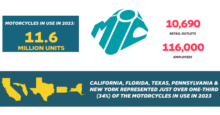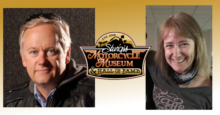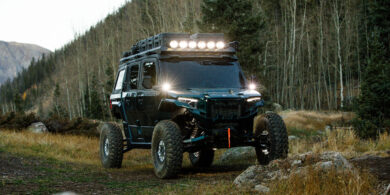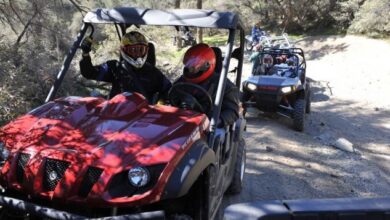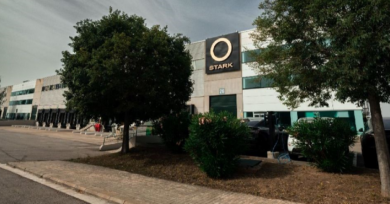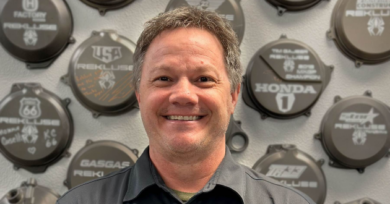Pistons and gaskets bring strong performance
Namura Technologies outgrowing its warehouse with growth
You can bet that the employees at Namura Technologies won’t take long to make their own personal stamp on their new digs. The Minnesota-based supplier of pistons and gaskets has experienced extensive growth in recent years, and found the need to pack up and move to a new warehouse.
And while the former location in Eagan oozes personality — you’ve never seen more powersports-related photos taped and tacked onto walls — there will be plenty of empty space in Rosemount, too, waiting for their signature interior design.
The upgrade in size is substantial — from 9,000 square feet with 18-foot high ceilings, to more than 20,000 square feet and 24-foot high ceilings. Holding to a 94 percent fill rate, Namura has been on quite a growth trajectory. It experienced 40 percent growth in 2012, and followed that with an additional increase of 24 percent in 2013.
Product development and successful distribution channels have played a part in the success, as the company, with headquarters in Tainan, Taiwan, produced 80 new gasket kits and 22 new piston series applications last year alone.
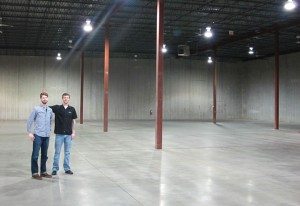
“We’re receiving the feedback from our distributors and we listen to what they’re asking for. We take that to heart,” Levi Hentges, director of international sales & marketing for Namura Technologies, told Powersports Business during a recent tour of both the old and new facilities in the Twin Cities’ southern suburbs.
Namura’s list of distributors runs deep and includes Western Power Sports, Newcomb, Southern Motorcycle Supply, McDonald ATV, Bay City Supply, Marshall Distributing, Magnum and Automatic Distributors.
Namura, and its sister company Nachman International USA, operate as independent businesses, both with Taiwanese operations as well. Dale Nachman, a longtime Minnesota snowmobiler who still rides his motorcycle to work, founded his namesake Nachman International Co. in Taiwan in 1985 as a sourcing agent. And while Namura handles the pistons and gaskets markets, Nachman handles other powersports componentry.
Namura launched in 2001, and now has sales in more than 30 countries thanks to its network of 40 international distributors. WPS became the brand’s most recent distributor in 2011.
“They’ve been great to work with and we’ve seen great growth from them,” Hentges said. “But at that point we essentially closed the USA market. We’re not adding any more distributors for fear of saturating the brand and product lines. It was a long discussion internally, but we took a look at warehouse coverage for the market, and that’s where we said ‘OK, we’re good’ since we only work through distributors and no retailers of any kind.”
A down economy added to Namura’s growth, with consumers opting to buy aftermarket pistons and gaskets to repair or upgrade their machines rather than buy new ones.
“So that certainly led to growth, but you also have to consider the distributor support,” Hentges said. “Namura started in 2001 as a new brand in the marketplace, so having our distributors support and really be willing to take that leap of faith with us is a huge thing. Their continued support is shown by getting our new products into their catalogs and getting them out into the dealerships.”
Hentges doesn’t overlook those who work alongside him, either.
“Look at our internal operations,” he said. “A company is only as good as its weakest link. If purchasing isn’t maintaining inventory, it doesn’t matter what I sell if the warehouse isn’t shipping it out. Everybody needs to focus on the same goal, and thankfully that happens here.”
Hentges said dealers and distributors alike are able to capitalize on products that they can’t get elsewhere.
“There’s a pricepoint advantage with our products,” he said. “The features that come with our products — the anodized domes, machine-smoothed heads, coated skirts — all retail out for a competitive price on the market but still allow for a healthy margin for dealers and distributors. Add you have to include the reliability of our products and their production at world-class manufacturing and R&D facilities.”
Namura underwent a company-wide restructuring in 2011, which also led to sales growth. By working with more than 1,500 manufacturers in China and Taiwan and building off a strong staff of 55 employees at two facilities in Taiwan, the growth in Rosemount isn’t so surprising after all.
“Every company has growing pains, but it seems like we have felt a really healthy rhythm with our current operations,” Hentges said.
And while Hentges admits that he would “never say never,” Namura for now and the immediate future has no plans to expand its offerings beyond pistons and gaskets.
“We’ve had requests from several distributors in the past two branch out, but we still see a lot of potential for growth within our current product offering,” he said. “At the current time we don’t want to dilute the services we offer.”
As a company focused on the aftermarket, Namura reaches all segments of the powersports industry. From side-by-side to motorcycle, the diversification can also be seen as a growth driver and innovation instigator.
“Internationally, the ATV market is pretty limited due to government regulations throughout Europe, so that limits riding,” Hentges said. “But when you look at the growth of the UTV market — they’re not slowing down, and neither are we.”
The 4-stroke motocross market has been particularly successful for Namura recently.
“We just jumped into that marketplace about two years ago,” Hentges said. “Why? We weren’t there. The market is a pie, and if you’re not going for any of the pie, well then everyone else is.”
Namura had a heavy focus on the two-stroke and four-stroke ATV market, but developed a new material that suits the four-stroke bike market.
“It’s an aluminum alloy that allows you to make a cast piston that will withstand the heat and operating conditions of a four-stroke engine, where normally you’re required to have a forged product,” Hentges said. “Since we can offer something new that wasn’t already in the market, that’s where we found success.”
Hentges estimates that 99 percent of Namura’s products are cast, which makes them appealing to a range of dealers, and figures to add to the company’s future growth charts.



